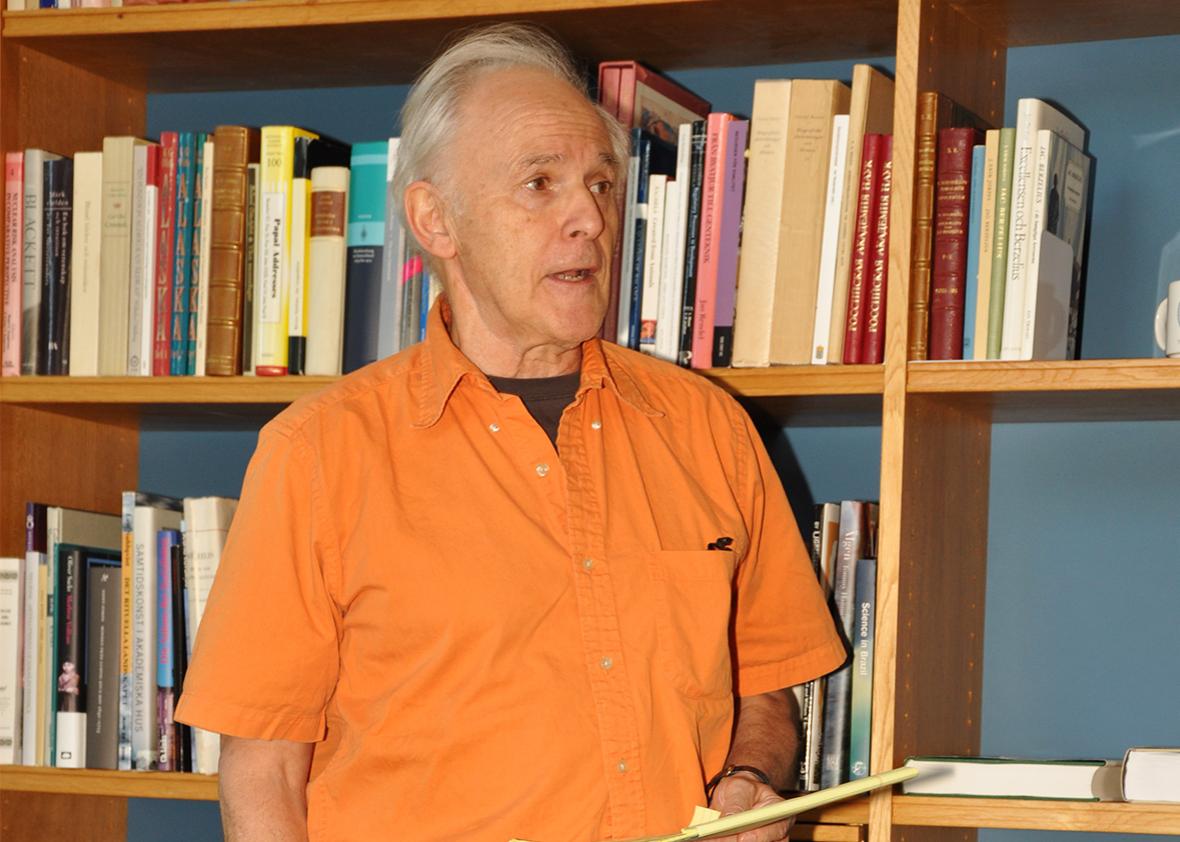Harry Kroto, Nobel laureate chemist, discoverer of the “bucky-ball” carbon molecule, and passionate defender of young science students, died on Saturday.*
Kroto was my champion. When I was 17 years old, I found his email online and asked him for help. I wanted to fight Louisiana’s creationism law, a law that allows public school science teachers to attack evolution. Kroto knew nothing about me, a high school student in Louisiana. “What’s your phone number?” he answered.
An hour later, he had called me to discuss creationist tactics, warning me they would lie about me and try to force me into fake compromises that would still weaken evolution and undo everything we were working for. “Never, ever, compromise on science,” he said. The next day, he circulated a letter that I’d written to dozens of other Nobel laureates, getting them to sign onto the cause too. Then Harry got in touch with Louisiana media and told them that “the lawmakers of Louisiana are a laughingstock as far as the scientific community is concerned.”
Kroto was never content to only change the world through his research. He understood that his success had given him an outsized megaphone, so he used it. He was a relentless fighter for the causes he believed in, from helping defend science to organizing a protest of Russia’s “gay propaganda” ban (which criminalized even acknowledging homosexuality in Russia) with his friend, actor Sir Ian McKellen. He consistently opposed anything, and everything, done by Rupert Murdoch, the conservative media magnate, summing up his problems with Murdoch to the New Zealand Herald: “He has no ethics whatsoever,” he said. “He’s politically influential and he has no real social responsibility.” Harry, on the other hand, knew his responsibilities deeply.
There was “just too much to do,” Harry said, the last time we spoke.
He had the world on his shoulders, especially when it came to science. He fought for increased funding for basic scientific research, and also against creationism—not just in Louisiana but also in his adopted state of Florida, where he was a professor at Florida State University in Tallahassee. He was always trying to teach young people how to better communicate science, from helping them internalize the basic facts to giving them tips on how to keep an audience.
And he was constantly bouncing ideas off the wall to find more compelling ways to show people evidence that would help them understand evolution and global warming rather than being a “smart-arse scientist” lecturing them. “I have been thinking about your tack as I give a lot of lectures and often address contentious issues,” he wrote me. “We must not be dictatorial … because U-turns are almost impossible for politicians.”
Who will be our champion, now?
A few weeks ago, my dad called me outside and pointed to a car with Florida plates parked outside our house. “That’s your sticker,” he said. There was a small blue computer-printed bumper sticker with a white Darwin Tree in the center. (The Darwin Tree comes from a sketch Darwin made in his notebooks of a tree as a metaphor that shows twists and turns as different species diverged and evolved from ancestral species throughout history. It’s an early phylogeny.)
But, really, it was Harry’s sticker. After the first time we spoke, he mailed me a box of books and several hundred of these stickers to pass out to Louisiana politicians. He’d designed them himself. (Graphic design was one of his hobbies.) Ever since, they’d decorated my cars, computers, and walls.
A Florida State University professor was visiting our neighbor. I ran outside with one of my own stickers. “How did you get that sticker?” I asked. “Do you know Harry Kroto?”
She was one of his friends, and she let me know that he had been on leave from Florida State—and that he had Lou Gehrig’s disease. “He’s doing well, though,” she said, “I’ll let him know I met you.”
I was going to email Kroto, too. I just wanted to tell him that people were still getting his message, and still proudly waving the flag of science, even in Louisiana. That we were still fighting for social responsibility and science. But, I didn’t. It got lost in the stack of other messages that needed to be sent. I thought there was more time.
Kroto wasn’t religious. He’s not out there watching over us. But, his life’s work is still with us, the science, and everything else. I wish there was one more chance to tell him how he inspired us.
We’re keeping the faith, Harry. For lack of any better words, we’re keeping the faith.
*Correction, May 5, 2016: An earlier version of this article misstated the date of Harry Kroto’s death as Monday. He died on Saturday. (Return.)
